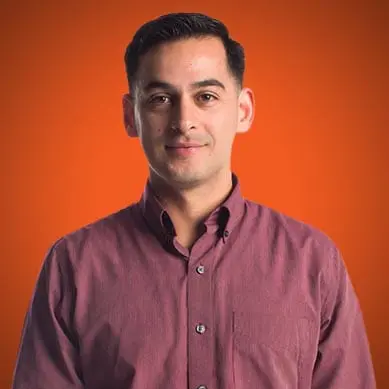Emanuel Alcala is a PhD student in public health at the University of California, Merced. He is a part of Health Policy Research Scholars Cohort 2017.
Before we begin, tell us a little bit about yourself and what your research interests are.
I’m a fourth-year PhD student at UC Merced, and the majority of my research interests lie in the underserved and vulnerable populations of California’s San Joaquin Valley. My focus is on conducting place-based research including neighborhood-level social and environmental determinants of pediatric asthma. I aspire to work toward health equity by conducting research that impacts the San Joaquin Valley.
What’s the story behind why you’re doing what you’re doing?
I began my scientific career by learning methods commonly used in general/experimental psychology. I was fortunate to work as a research analyst at the Central Valley Health Policy Institute, which was my first true exposure to the world of public health. I was greatly moved by the potential to impact population health through research as well as by professionals deeply dedicated to work toward health equity. I am in the process of attaining my PhD to continue the legacy of my mentors.
Tell us about a project you are currently working on that you are excited about.
I am currently working on a project that investigates the impact of social and environmental hazards on pediatric asthma exacerbations. There is great variability in asthma across neighborhoods that cannot be fully explained by person-level risk factors. I am excited to learn and implement statistical methods that accurately estimate neighborhood-level effects on asthma by accounting for person-level risk factors. These place-based analyses lend themselves well to impacting local policy.
For people unfamiliar with your research area, what is one piece of information you think is important for them to know?
Health is greatly impacted by where you live.
Who is a researcher you admire and why?
I greatly admire all of my colleagues in the Health Policy Research Scholars program. I am extremely honored and privileged to be surrounded by such talented researchers who have an unmatched passion for achieving health equity. I find it inspiring to share a vision with such a talented group.
I greatly admire Dr. John A. Capitman as a researcher, professional, and advocate for social justice. As a researcher, Capitman has an insatiable appetite for learning, brings limitless energy to thinking through complex theory, and is always on the frontier of science. Professionally, he actively implements an open-door policy and is extremely responsive to students and colleagues. Most of all, I admire Capitman’s fight for social justice. Social justice is at the core of all of his professional work and is present in his daily life.
How has being an HPRS Scholar helped you during your time as a doctoral candidate?
The HPRS program has helped me in so many ways! The program has exposed me to a network of scholars that I would not have met otherwise. Due to the time that the program has afforded me, I have been able to pursue research that has led to scholarly presentations and peer-review publications. Furthermore, I have developed skills to enhance the dissemination of my research through media, memos, and public testimony.
In the RWJF HPRS program, we have worked with you to help you think further about using your research to develop policy. If you could use your research to change any policy, what policy would it be?
To provide health care for all.
OK, here’s a fun question to wrap things up. If you were stranded on a desert island, what three items would you want to have with you?
If I were stranded on a desert island, the three items I would choose to take are: 1) flint fire starter, 2) water purification system, and 3) my guitar.
Thank you so much for your time!

